ASF has worked to build a new snakebite clinic in Kindia, Guinea that will be able support the surrounding community more effectively and save lives by treating snakebite victims with safe and effective antivenom. We plan to assist with the move from the old clinic to the new clinic and bring supplies for the new building. We also hope to continue training of the local providers that treat patients in the clinic year round, while while assisting in the treatment of snakebite victims.
Our current clinic is located in Kindia, Guinea and treats 500-700 snakebite patients a year that sometimes travel from many hours away for snakebite treatment. This region has poor access to effective snakebite treatment and many patients have historically sought care from traditional healers. Most patients are farmers who are bitten while working in their fields. Loss of their limbs or their lives negatively impacts their families in a major way as they are often unable to return to work.
We hope to expand our capabilities to treat snakebite patients more effectively. We also hope to continue to breakdown barriers to snakebite care in the region through continued community outreach and education. We are working to establish more partnerships in other African countries with similar barriers to snakebite treatment and hope to continue to use the lessons learned in Guinea to facilitate these new partnerships.
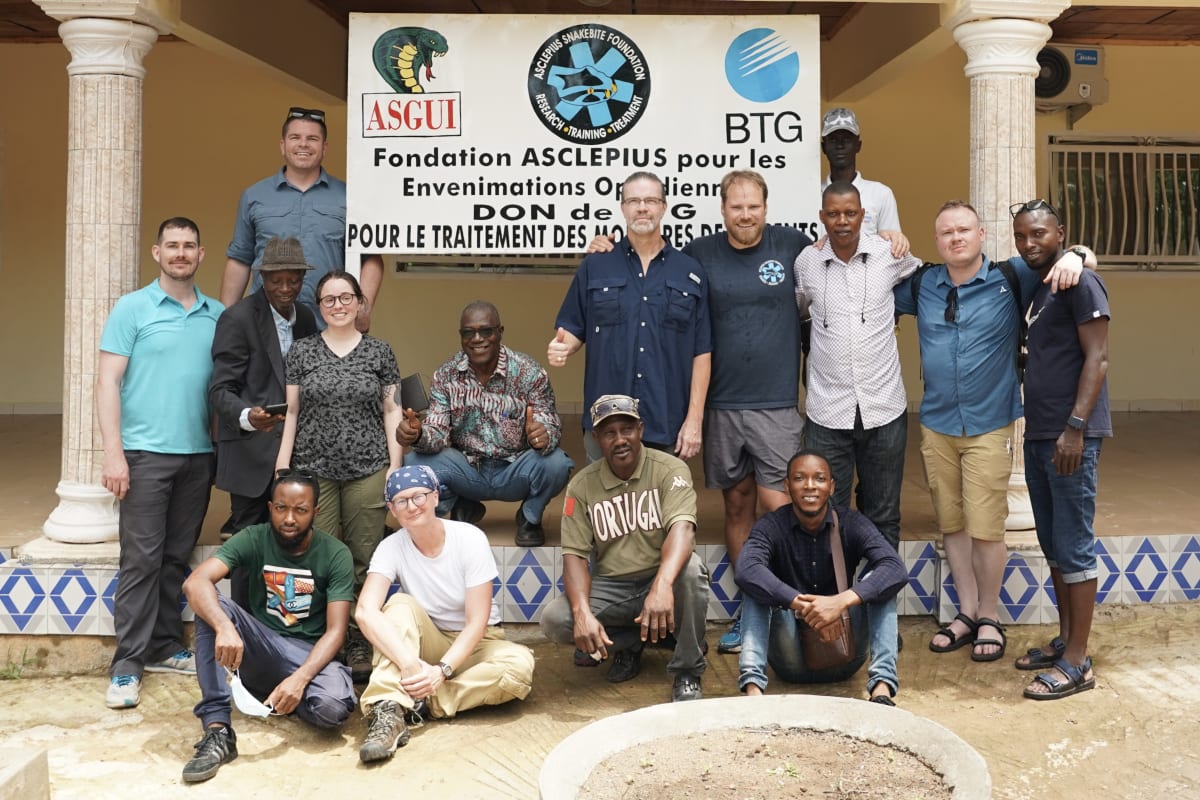
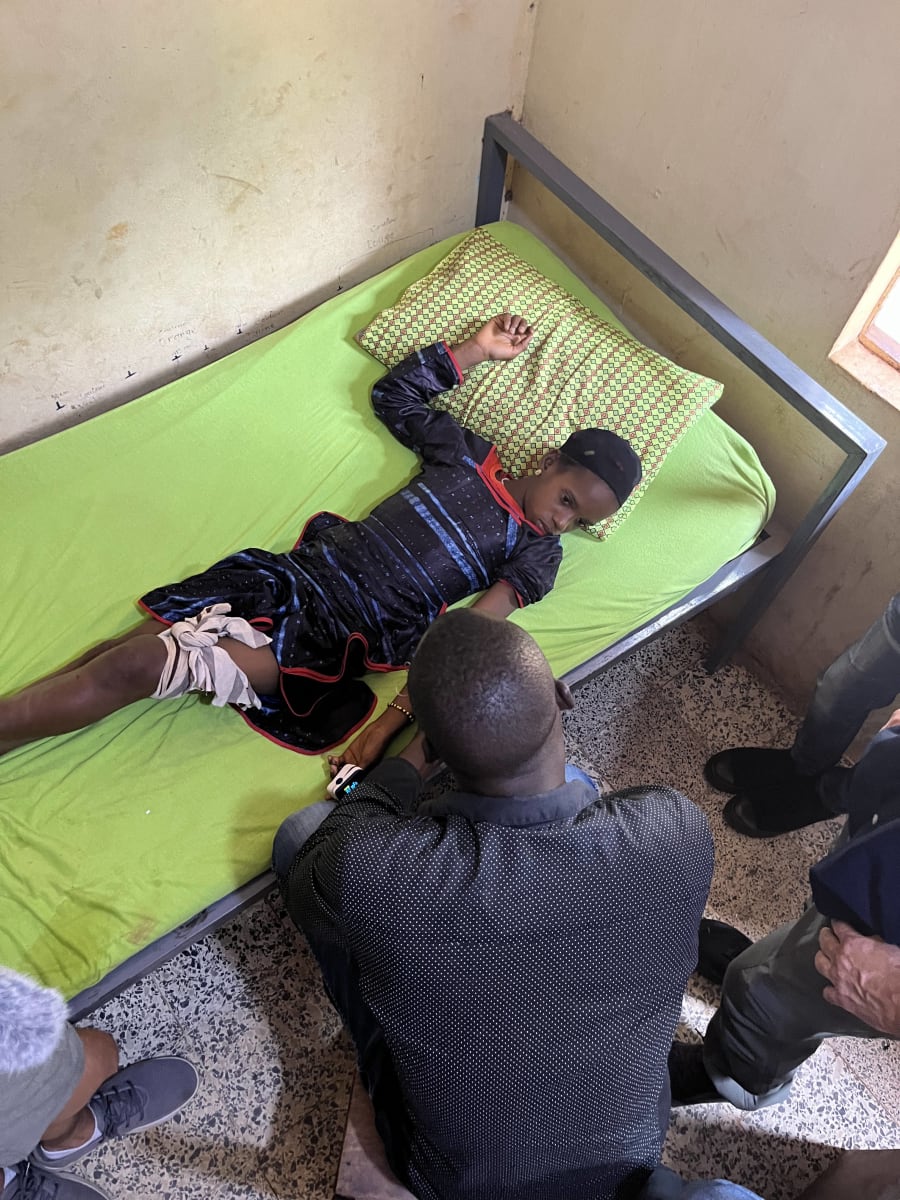
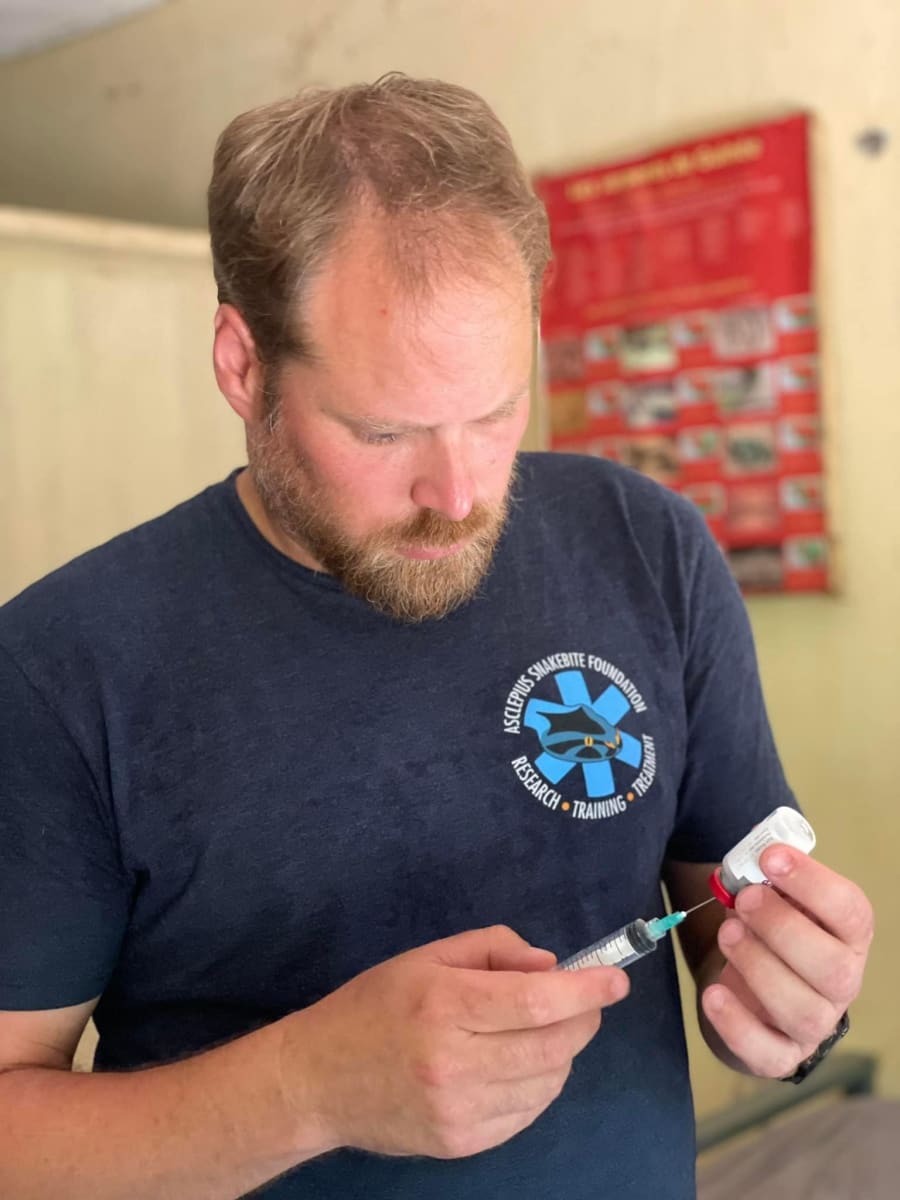

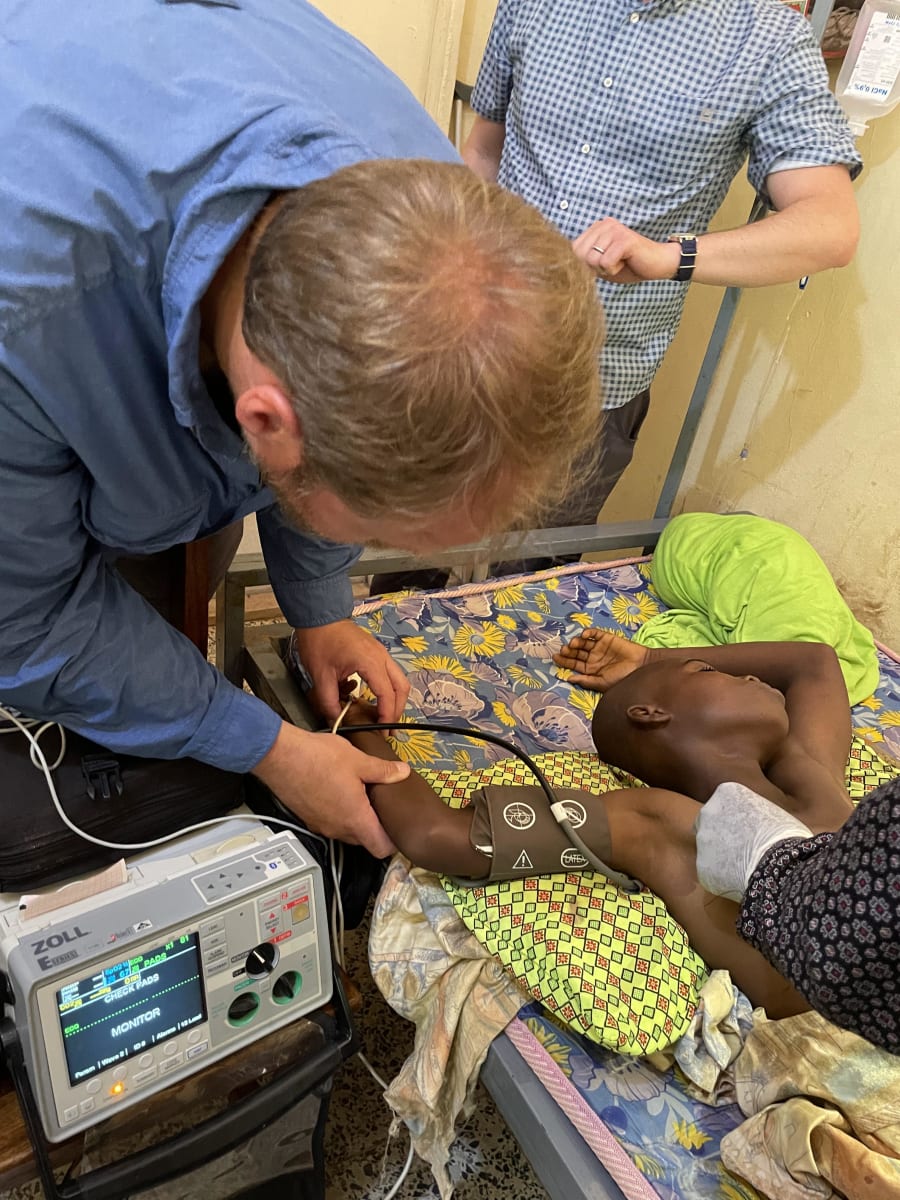
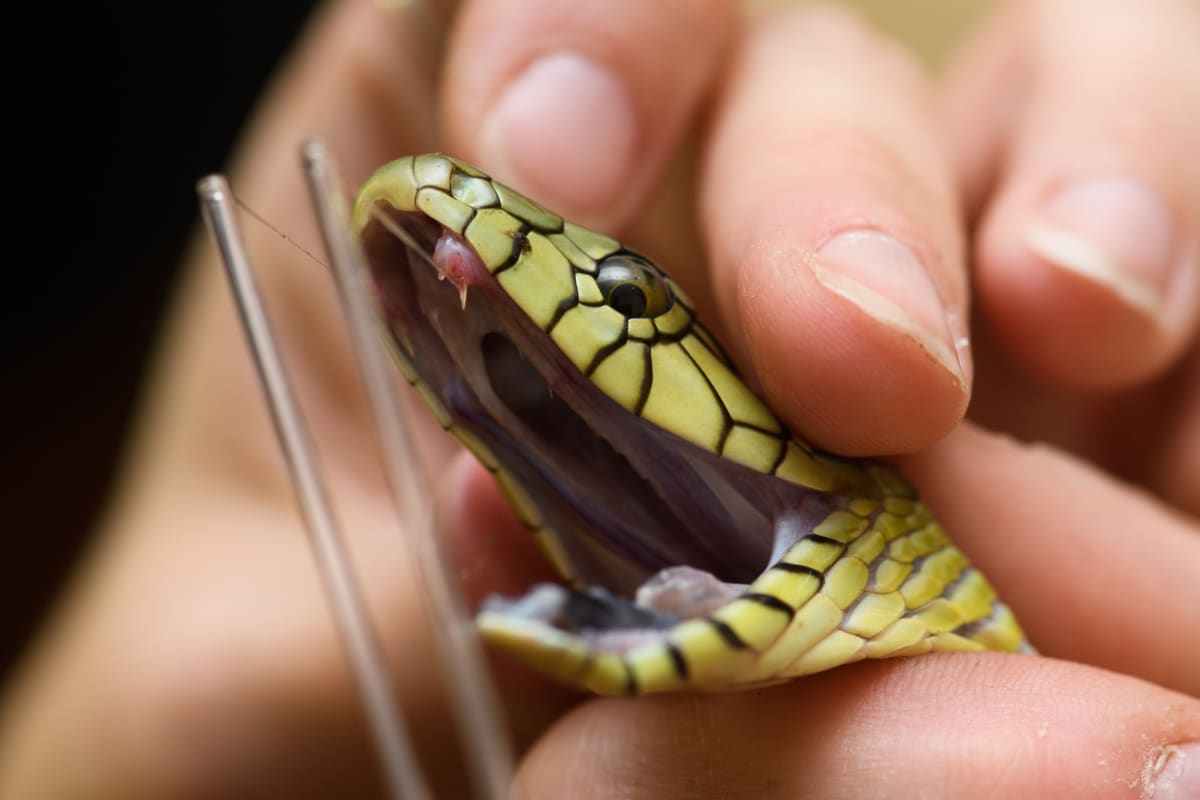






The Asclepius Snakebite Foundation is dedicated to reducing the burden of snakebite in high risk areas where people frequently come into contact with venomous snakes, yet have limited access to healthcare and effective antivenom. We work with multiple partners across sub-Saharan African, but have a significant partnership with a dedicated snakebite clinic in Kindia, Guinea and we visited them in June 2022.
We brought medical supplies and antivenom to support the ongoing efforts of the clinicians at the clinic. We have also been working on opening a new, expanded snakebite clinic serving the Kindia region. This has been a massive, multiyear project that is finally nearing completion.
The current clinic treats about 400-500 snakebites a year, and there were many bites that presented during our time in Guinea. Patients would often visit a local healer first and subsequently present to our clinic after initial treatments were not successful, sometimes traveling great distances by motorbike. This delay in presentation, and ultimately antivenom, can lead to poor outcomes. We continue to work with community leaders and the local government to improve awareness of the safety and efficacy of antivenom, while also improving resources and access.
While the majority of patients treated had favorable outcomes, there was a pediatric death from a severe mamba bite. This led to educational sessions focused on the treatment of severe neurotoxic snakebites and ventilator management. We reviewed bite protocols and worked to increase the initial dose of antivenom in the case of severe neurotoxic bites. We have also since raised funds to supply the clinic with monitors with ETCO2 capabilities, as well as an oxygen concentrator.
Our organization also has herpetologists focused on better understanding the snakes that live in the Kindia region. Every evening, a group made up of Guinean herpetologists, ASF herpetologists and the medical teams would hike into the surrounding savannah and forests to look for amphibians and reptiles. Venomous snakes were captured and the herpetology team would use ketamine to safely sedate the snakes and extract venom using capillary tubing. Components of venom within a species can vary across geographical range, and the goal is to better understand the venoms of the snakes causing envenomations across Guinea.